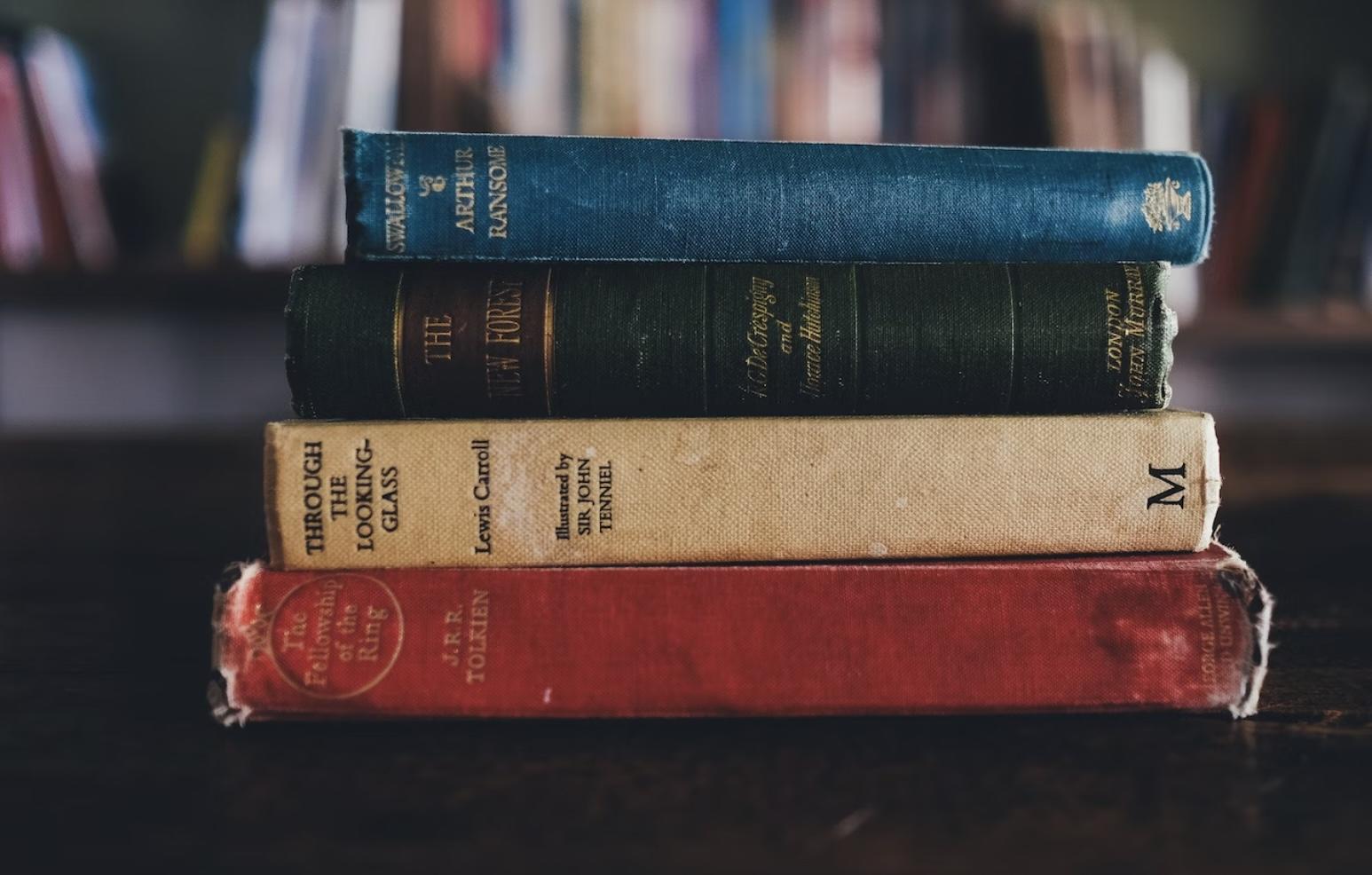Britain is known for innovating and creating. As well as inventions like the telephone and the world wide web, there are some incredible cultural impacts of the country on the whole world. As well as musicians and filmmakers, many of the best British authors are among the best authors of all time.
When somebody asks you to think of famous writers in English literature or even famous poets, there is a good chance that many British people will immediately spring into your mind.
On this list of 10 influential writers that changed the world, no fewer than seven of those on the list are British. There can be no denying that some of the most famous authors of all time are from the United Kingdom.
In this guide, we've put together five of the "must-read" British authors, covering many periods throughout the history of literature and famous poets and authors from the country.

William Shakespeare

The most obvious choice on the list is William Shakespeare. His work is still studied today in English literature classes around the world. Shakespeare was a playwright and actor, as well as composing sonnets. Few people have sent the same cultural ripples as Shakespeare, whose work is still adapted and modernised today.
The impressive body of his work includes 38 plays and over 150 different sonnets and poems.
Most of his plays didn't still exist as manuscripts, but a group of actors working with him helped to preserve his work and bring together his writing. In a way, what we know as Shakespeare was a joint effort.
Reading Shakespeare's work can be challenging due to the profound changes in language since, but it is recommended to try and take in some of this cultural icon's finest work at some point in your life.
Achieve confidence in your reading with the guidance of an experienced English tutor.
Works of Shakespeare
All's Well That Ends Well (1602)
Antony and Cleopatra (1606)
As You Like It (1599)
Comedy of Errors (1589)
Coriolanus (1607)
Cymbeline (1609)
Hamlet (1600)
Henry IV, Part I (1597)
Henry IV, Part II (1597)
Henry V (1598)
Henry VI, Part I (1591)
Henry VI, Part II (1590)
Henry VI, Part III (1590)
Henry VIII (1612)
Julius Caesar (1599)
King John (1596)
King Lear (1605)
Love's Labour's Lost (1594)
Macbeth (1605)
Measure for Measure (1604)
Merchant of Venice (1596)
Merry Wives of Windsor (1600)
Midsummer Night's Dream (1595)
Much Ado About Nothing (1598)
Othello (1604)
Pericles (1608)
Richard II (1595)
Richard III (1592)
Romeo and Juliet (1594)
Taming of the Shrew (1593)
Tempest (1611)
Timon of Athens (1607)
Titus Andronicus (1593)
Troilus and Cressida (1601)
Twelfth Night (1599)
Two Gentlemen of Verona (1594)
Winter's Tale (1610)
Jane Austen

Few will be surprised to see the name of Jane Austen on here, either.
Many of us are familiar with her work in some form or another. For instance, you may have seen adaptations even if you haven't read the originals.
Austen's work stands up to this day and provides us with a fantastic record of the era, but when it comes to influence, the fact that Austen was such a trailblazer is another reason for her to be celebrated.
She was a rebellious critic and one of the leading female voices to speak up at a time when the patriarchy was undeniably in control. Many of her books stood as a voice for the feminists of the time, and she used dry humour and witty style to speak up for women and female writers, creating some of the most essential books ever known.
Works of Jane Austen
Sense & Sensibility (1811)
Pride & Prejudice (1813)
Mansfield Park (1814)
Emma (1815)
Persuasion (1817)
Northanger Abbey (1817)
Sanditon (1817)
Charles Dickens
Dickens is another whose work is still adored to this day. Another Victorian-era British author, he produced 15 novels and many novellas, stories, and essays in his time. Dickens was a parliamentary journalist as well as an author.
He was known for his writings about London, where he lived from a young age, and his influence partially came from his social commentary on the issues of the time.
Dickens was known as a great storyteller and a fantastic creator of characters, some of whom were over-the-top, grotesque and caricature-like. He first gained recognition when he published The Pickwick Papers, issued monthly in 20 different parts, released monthly.
The novella A Christmas Carol is arguably one of the most famous works by Dickens and has been adapted for the screen and modern audiences plenty of times. (There's no Muppets Jane Austen yet). With patience and encouragement, an English tutor can empower students to reach their language goals. Dickens' novels can be found below.
Works of Charles Dickens
The Pickwick Papers (1836)
Oliver Twist (1837)
Nicholas Nickleby (1838)
The Old Curiosity Shop (1840)
Barnaby Rudge (1841)
Martin Chuzzlewit (1843)
Dombey and Son (1846)
David Copperfield (1849)
Bleak House (1852)
Hard Times (1854)
Little Dorritt (1855)
A Tale of Two Cities (1859)
Great Expectations (1860)
Our Mutual Friend (1864)
The Mystery of Edwin Drood (1870)

George Orwell
In the last 100 years, few British authors have had the sort of influence that George Orwell had.
Not only has Orwell's work been loved and revered, but it has also spilt into modern culture in ways he probably never predicted. Terms from Orwell's books have entered popular culture and are used in day-to-day language, including Room 101 and Big Brother. Things are also often described as "Orwellian" when dystopian, like his iconic writing.
Orwell's work was primarily influenced by war and totalitarianism. He had voluntarily fought in the Spanish Civil War and joined the Home Guard when he was deemed unfit for military service in the Second World War.
Orwell worked in Propaganda throughout the war for the BBC. He also wrote non-fiction and fiction, but for the influence of books such as Animal Farm and 1984, he makes our list of influential and best UK writers and figures from English literature. He sadly died before reaching 50, shortly after completing 1984.
Works of George Orwell
Burmese Days (1934)
A Clergyman's Daughter (1935)
Keep the Aspidistra Flying (1936)
Coming Up for Air (1939)
Animal Farm (1945)
Nineteen Eighty-Four (1948)
J.R.R. Tolkien

J.R.R. Tolkien is another 20th Century British writer who had an unbelievable impact on modern culture.
While some look down on literary works in the genre of High Fantasy, Tolkien was undeniably a true master at this craft, creating creatures, worlds, and tales still enjoyed worldwide today.
Many younger generations know of his work through film and television adaptations. Still, his career was popular long before this and was studied in schools throughout the 1960s and 70s in the UK.
Tolkien is not just known for his storytelling. The depth to which he would go was genuinely groundbreaking. Tolkien created maps and even languages to help him to tell his tales, immersing his audience in Middle Earth.
Tolkien worked as a professor of English Language and Literature at Oxford University before eventually finding fame in his 60s when The Lord of the Rings was published. He was also the creator of The Hobbit, published much earlier in his life, and a variety of spinoff books set within the same universe, many of which were finished by his son, Christopher, after his death. Including those completed by the family, his books are:
Works of J.R.R. Tolkien
The Hobbit (1937)
The Lord of the Rings (1954)
The Silmarillion (1977)
Unfinished Tales of Númenor and Middle-earth (1980)
The History of Middle-earth (1983 to 1996)
Tales from the Perilous Realm (1997)
The Children of Húrin (2007)
Notable Mentions

It is impossible to span the enormous influence of the great British writers and some of the most famous authors within one article. There are so many to mention.
The likes of Geoffrey Chaucer, H.G. Wells, and modern bestsellers such as Terry Pratchett and J.K. Rowling have not made our list but have all played their part in the critical history of English literature.
Other notable mentions include C.S. Lewis, Roald Dahl, the Brontë Sisters, and William Blake, and that's without delving into some of the famous British poets who have also made such a cultural impact. Unlock your potential with personalized lessons from a dedicated English tutor.
Conclusion
The tale of English history and British history has literature interwoven throughout. Since around the year 1400, we have manuscripts that help to teach us about history and some of the most famous authors of all time, including those mentioned on this list.
While reading the likes of Shakespeare and Dickens requires a knowledge of language changes and the ability to transport yourself into the eras they were written, a stunning world of language and history awaits those who can do so.
British authors have achieved an influence that should be celebrated worldwide. They will continue to play a part in the future of literature.
Summarise with AI:















Sir, namste, pranaam
Thanks for giving beneficial and valuable knowledge
Hello Raghav, thank you for the kind comment! We’re happy you enjoyed the article. 😊📚
This was a comprehensive read and most appreciated the lists provided for each author.
Thank you! I’m so glad you found it comprehensive and enjoyed the lists for each author. Feel free to let us know if there any other authors you would add to the list!